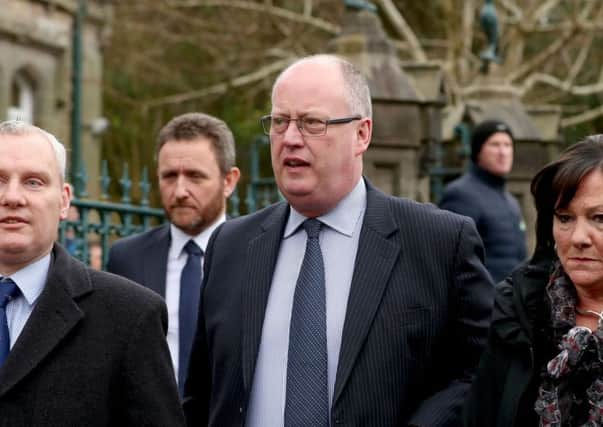Ben Lowry: There is a good reason for the delay in legacy structures, as PSNI chief should know


The PSNI chief constable has also written a thoughtful letter to relatives of Glenanne gang victims.
Mr Hamilton is under huge pressure and he is in a difficult position.
Advertisement
Hide AdAdvertisement
Hide AdEven so, his comments in the interview (link below), that the Stormont House Agreement (SHA) legacy structures need to be implemented promptly, stray perilously close to political.
He can hardly be unaware that nationalists (and others) are insisting the legacy plan be put in place.
He is unlikely to be unaware that some of us – in the world of politics and commentary – have grave concerns about the SHA structures.
Let me outline just one concern.
We are worried that the proposed Historical Investigations Unit (HIU) will end up investigating to a disproportionate extent Troubles killings by police and army.
Advertisement
Hide AdAdvertisement
Hide AdThe most benign reason why this might happen is that state forces had records, and are far easier to trace than terrorists, who did not.
That elderly veterans of Northern Ireland live in fear of investigation (or in some cases are facing murder trials) for their role in disputed shootings has underlined the vulnerability of ex security forces.
The moral culpability of a soldier involved in even the worst of the disputed army shootings, carried out in a split second, pales in comparison to the culpability of anyone who led a calculated, determined terrorist campaign over decades.
Therefore, if the former fear possible trial then the latter must also fear the same. But do they?
Advertisement
Hide AdAdvertisement
Hide AdDoes anyone think that there would have been a will across the wider legal, criminal justice and political worlds to examine comprehensively the late Martin McGuinness (whose funeral Mr Hamilton and multiple other dignitaries attended) for his role at the helm of one of the most determined terrorist organisations in modern history, and then put him on trial?
And if the answer to that is no, then it is an outrage that elderly soldiers do fear that prospect.
Some 10% of Troubles deaths were caused by police and army. It seems reasonable that – as an absolute minimum – the proposed HIU does not spend more than 10% of its time and resource on those killings.
After all, HIU was supposed to be the key body that would investigate the 90% of Troubles deaths caused by terrorists and ensure some balance in the legacy process.
Advertisement
Hide AdAdvertisement
Hide AdThe Troubles record of state forces has been, or is being, examined by a vastly funded Bloody Sunday inquiry (£200 million), by multiple Police Ombudsman probes of the RUC, by legally aided civil actions against the state, by legacy inquests, and by the PSNI legacy branch (about 30% of its caseload is security force killings).
If the HIU also ended up disproportionately focussed on security forces it would be a huge scandal.
Given how legacy has panned out recently, including a sweeping definition of collusion that has been used to imply that the RUC systematically aided loyalist terrorists, the government has – rightly – been examining whether it can legally ensure the HIU does not disproportionately chase the security forces.
Mr Hamilton has talked of his pride in the RUC, in which he served, so he ought also to be aware of a debate that has been rumbling in the background about legacy.
Advertisement
Hide AdAdvertisement
Hide AdIt is between those of us who say that the 360 or so state Troubles killings were overwhelmingly legitimate in their context, and others who say they were mostly illegal.
We will never agree. After all, republicans and their apologists do not even accept it was legitimate for the SAS to stop a fanatical, highly-armed IRA gang at Loughgall in 1987 as it tried to blow up a police station, and kill yet more RUC men – as it had done many times previously.
Republicans are so sure on that point that two taxpayer-funded legal cases have come before the courts, seeking to push along legacy inquests for those terrorists and to get state redress for killing them.
This is why there is deep concern about legacy inquests and deep concern about HIU. It is why SHA implementation has stalled.
The delay is for good reason.
Advertisement
Hide AdAdvertisement
Hide AdIn the very week a letter signed by 200 people, that gives a Sinn Fein-style analysis of the political stalemate, including on legacy matters, has added to the pressure on the government, Mr Hamilton has become the latest major public figure to give weight to the disputed notion that the SHA structures should be established promptly.
• Ben Lowry (@BenLowry2) is News Letter deputy editor